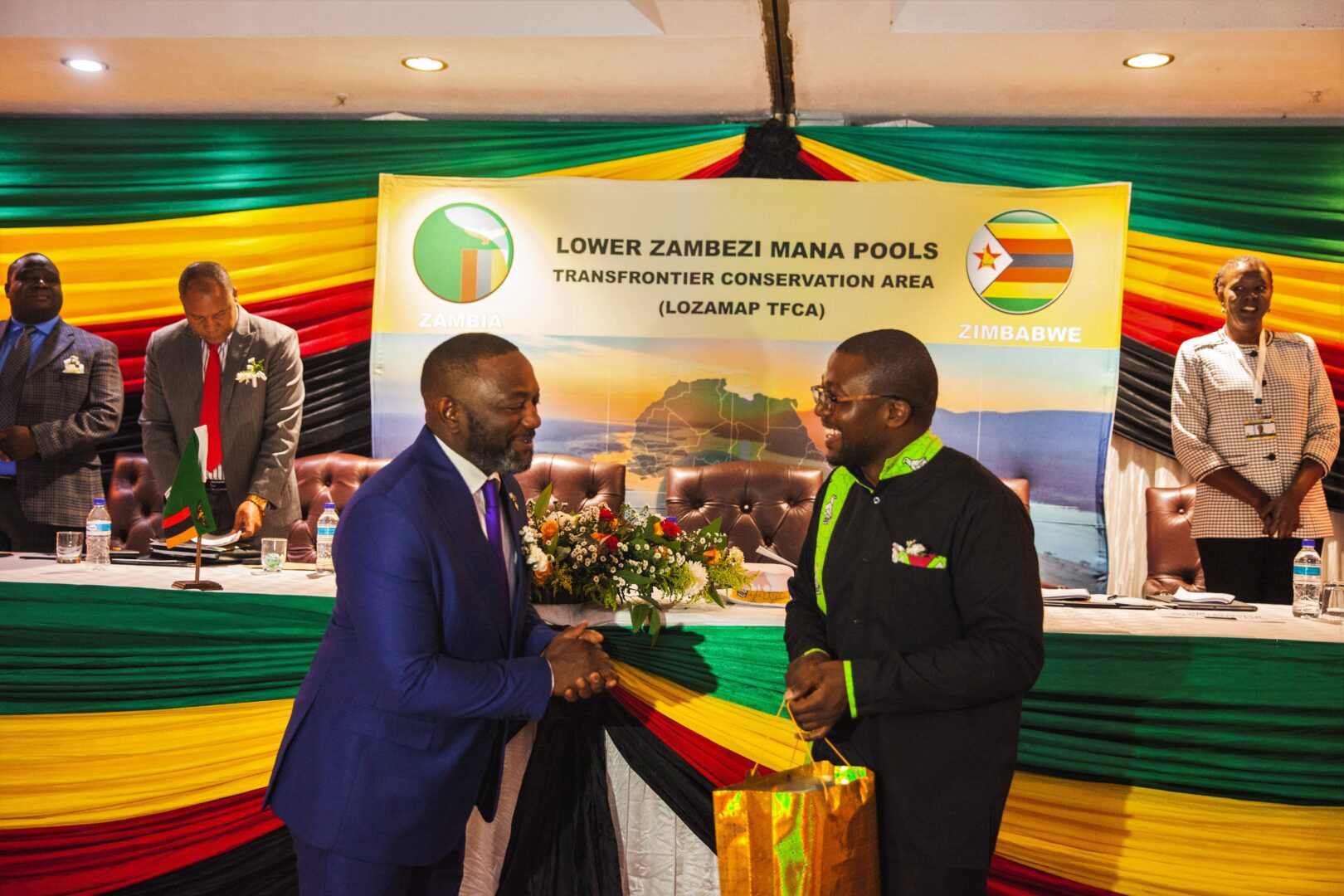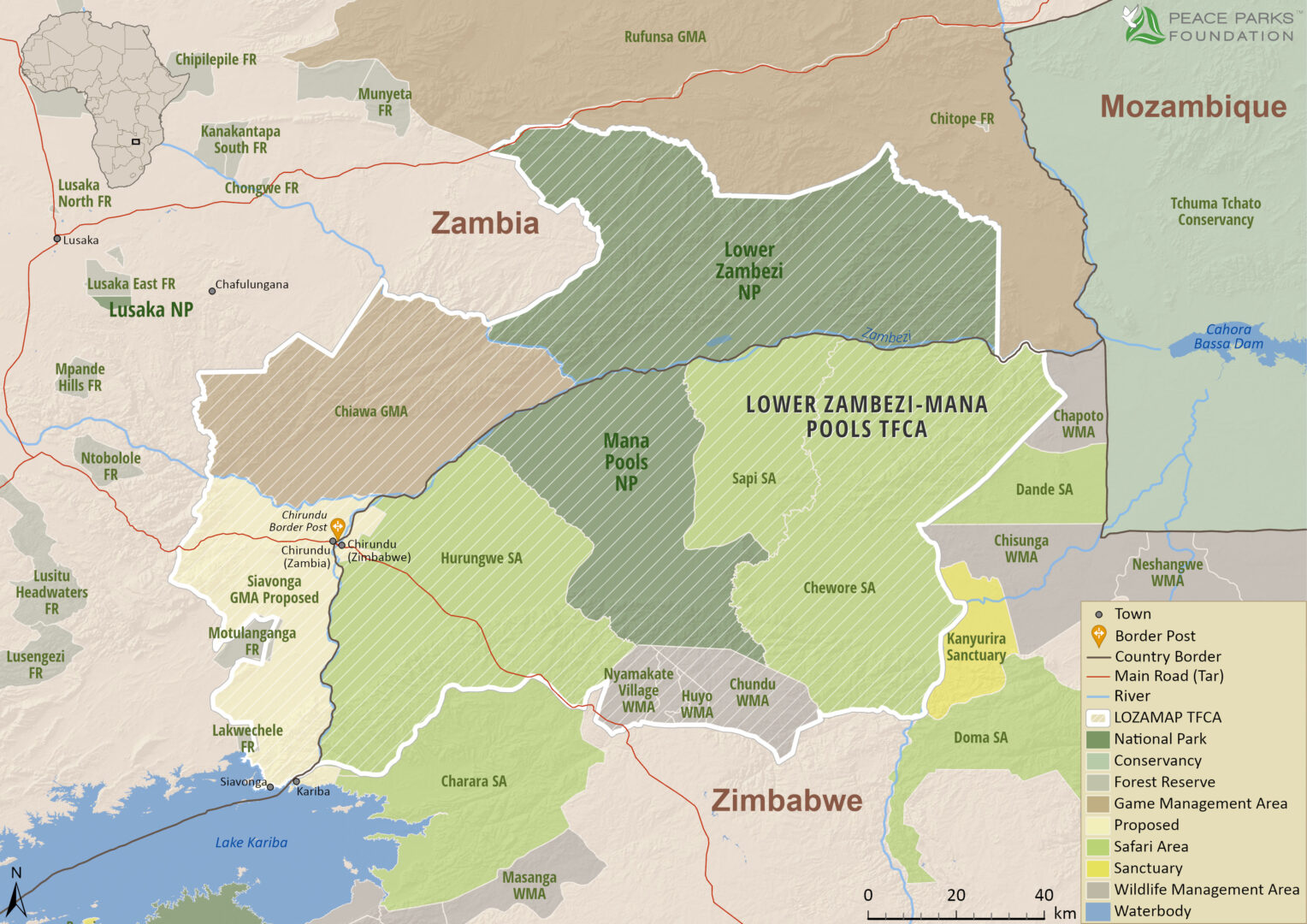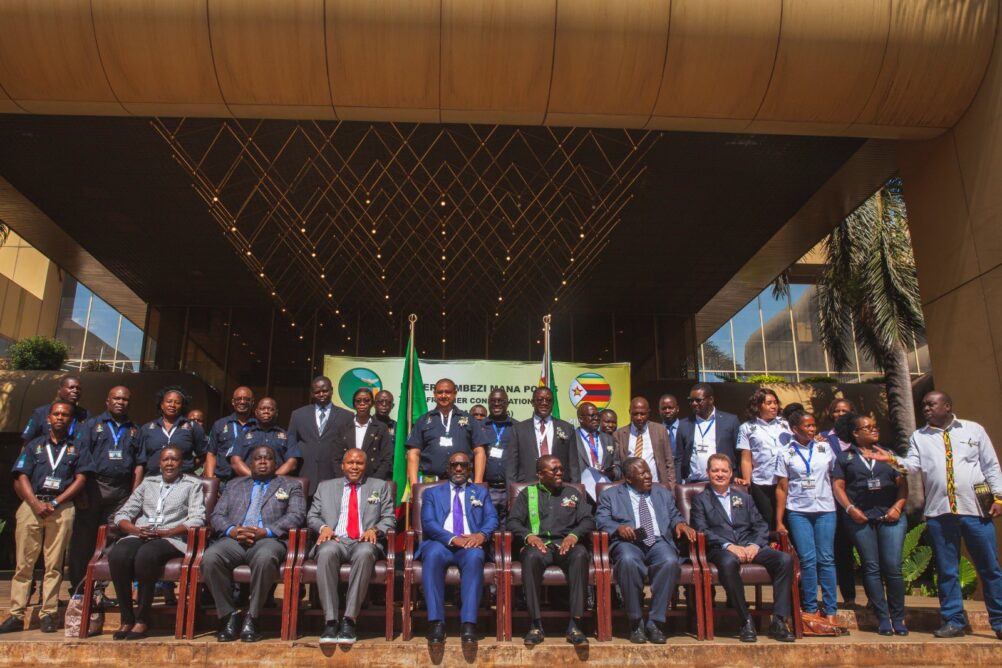Harare, 26 May 2023 – The Governments of Zimbabwe and Zambia today signed a ground-breaking Memorandum of Understanding (MoU), formally establishing the Lower Zambezi-Mana Pools Transfrontier Conservation Area (TFCA). The agreement embodies a powerful commitment to enhanced cross-border protection, demonstrating international cooperation and synergy in the face of ongoing global environmental challenges.
The signing was by the Hon. Ngobizitha Mangaliso Ndlovu, Minister of Environment, Climate, Tourism and Hospitality Industry, of Zimbabwe who hosted the ceremony and the Hon. Rodney M. Sikumba, Minister of Tourism, from Zambia.

The formalisation of the TFCA signifies the mutual resolve of the two governments to advance a partnership that enables better management of shared resources and the associated challenges through a regionally integrated approach as defined by the SADC TFCA framework. It highlights a critical need for cooperation to protect unique ecosystems and to cultivate a robust, sustainable wildlife economy across a landscape unfettered by national boundaries.
Spread across 18,515 km² of the Zambezi River basin below Lake Kariba, the TFCA embraces core conservation territories including the Lower Zambezi National Park in Zambia and Mana Pools National Park in Zimbabwe, in addition to a mosaic of game and safari management areas, communal land and conservancies. The Zimbabwe component is also a proclaimed World Heritage Site with unimpeded movement of wildlife throughout the area.

This initiative constitutes the opening of new opportunities for our two Governments, local communities and stakeholders to build tempo on Sustainable Development Programmes and ensure that all the participating players and stakeholders are strategically positioned for equitable sharing of tangible benefits.
Zimbabwe’s Hon. Ngobizitha Mangaliso Ndlovu, Minister of Environment, Climate, Tourism and Hospitality Industry
The TFCA not only ensures the protection of a diverse array of wildlife habitats, ranging from islands and riparian forests to inland woodlands and grasslands, but also creates ample opportunities for the local, rural communities who often have limited access and choice with regards to income streams.
This achievement today will inevitably promote peace and stability, ensure the sustainable utilisation of natural resources, provide economic development opportunities through nature-based tourism, as well as address food and nutrition security.
Zambia’s Hon. Rodney M. Sikumba, Minister of Tourism

Communities empowered to engage in tourism activities and wildlife conservation are the first line of defence in conservation; for an approach and an impact to be sustainable, it is essential to ensure that local people experience tangible benefits from decisions and developments. Existing initiatives such as Zambia’s Community Resource Boards and Zimbabwe’s Communal Areas Management Programme for Indigenous Resources (CAMPFIRE) programme are making a significant and commendable contribution.
On the Zimbabwean side, the CAMPFIRE programme facilitates the management of natural resources by communities and benefits derived from it. On the Zambian side, Community Resource Boards and a village scout programme recruits, trains and equips people from the communities to patrol the park and deter illegal activities such as poaching and overfishing. Projects are supporting conservation agriculture and sustainable fishing. Through shared governance, integrated conservation efforts, harmonised policies and improved land-use planning, the establishment of the TFCA will enhance local livelihoods, ultimately promoting sustainable development of the region’s biodiversity and natural resources.
This agreement is an important milestone as it paves the way for the joint management of shared natural resources in one of the most iconic conservation areas in Africa. Elephants, as a flagship species, that have been traversing the landscape irrespective of political boundaries for millennia will now once again be regarded as a single population to be managed and protected jointly within this ecosystem. Peace Parks Foundation wishes to commend both Governments for their visionary commitment to and leadership in conservation and sustainable development. We look forward to supporting the Governments of Zambia and Zimbabwe to help safeguard our common natural heritage for generations to come.
Werner Myburgh, CEO, Peace Parks Foundation





